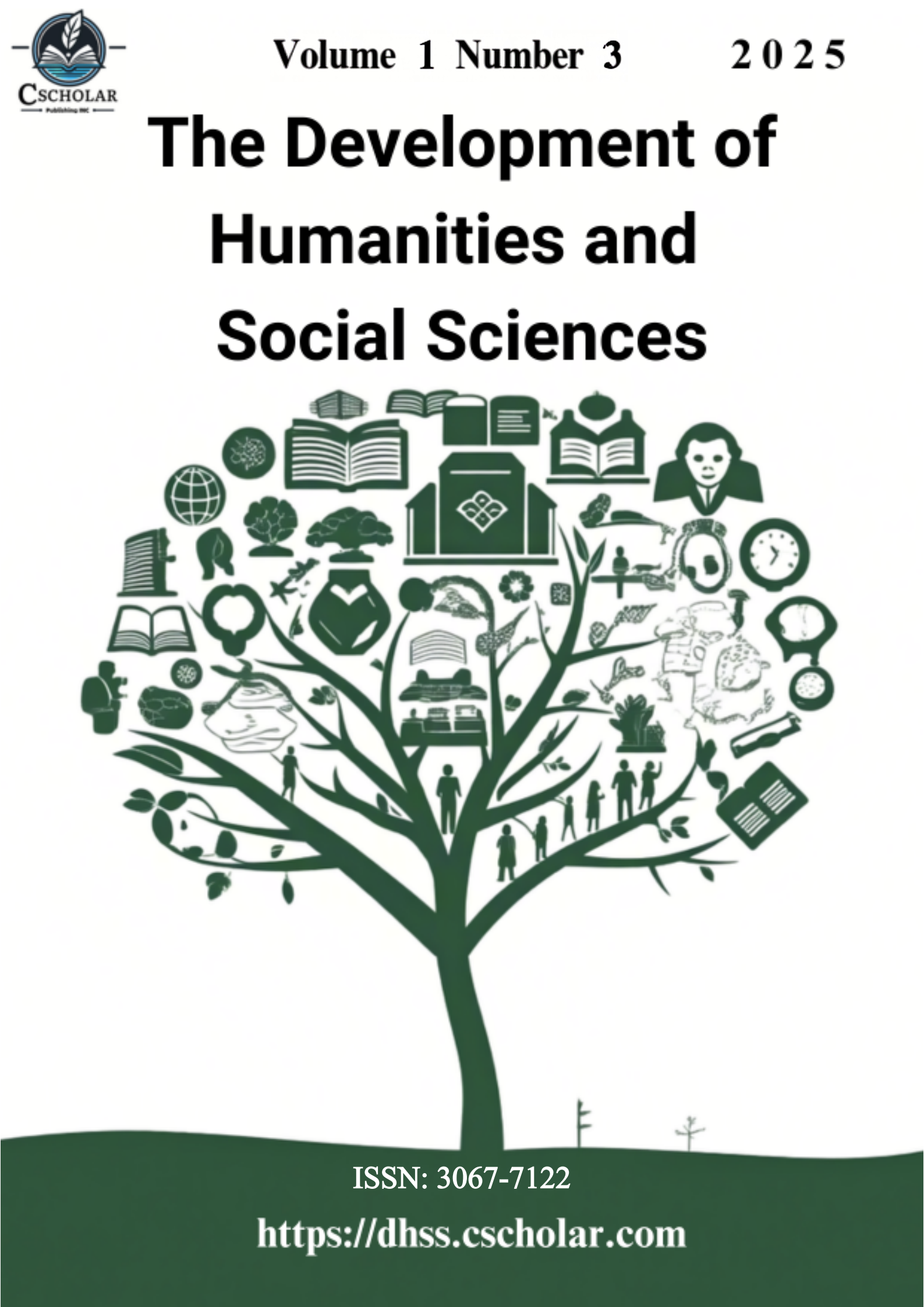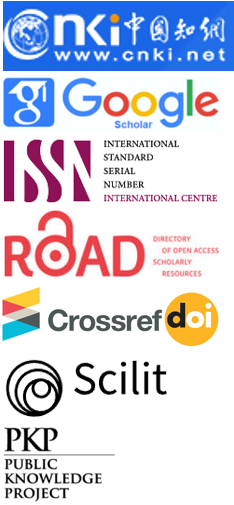A Literature Review on the Role of Artificial Intelligence in Marketing
DOI:
https://doi.org/10.71204/1p7n5w97Keywords:
Artificial Intelligence, Marketing, Consumer BehaviorAbstract
With the rapid advancement of artificial intelligence (AI) technologies, their application in marketing has become increasingly widespread. This paper reviews and synthesizes existing literature to examine the multifaceted impacts of AI on marketing practices. The findings indicate that AI offers significant advantages, including enhanced marketing efficiency, cost reduction, and the facilitation of personalized recommendations. These capabilities contribute to improved consumer experience and engagement, thereby fostering stronger brand loyalty and promoting brand image development. Nevertheless, the review also highlights inherent limitations of AI, particularly in emotional expression and authenticity perception, which may undermine consumer trust.
References
Chen, L., Chen, P., & Lin, Z. (2020). Artificial intelligence in education: A review. IEEE Access, 8, 75264–75278.
Davenport, T. H., Guha, A., Grewal, D., & Bressgott, T. (2019). How artificial intelligence will change the future of marketing. Journal of the Academy of Marketing Science, 48(1), 24–42.
Fitria, T. N. (2024). Artificial intelligence (AI) news anchors: How do they perform in the journalistic sector? iTELL Journal, 1(1), 29–42.
Guilherme, A. (2017). AI and education: The importance of teacher and student relations. AI & Society, 34(1), 47–54.
Haleem, A., Javaid, M., Qadri, M. A., Singh, R. P., & Suman, R. (2022). Artificial intelligence (AI) applications for marketing: A literature-based study. International Journal of Intelligent Networks, 3(2), 119–132.
Harry, A. (2023). Role of AI in education. Injury: Interdisciplinary Journal and Humanity, 2(3), 260–268.
Hartmann, J., Exner, Y., & Domdey, S. (2025). The power of generative marketing: Can generative AI create superhuman visual marketing content? International Journal of Research in Marketing, 42(1), 13–31.
Huang, M. H., & Rust, R. T. (2020). A strategic framework for artificial intelligence in marketing. Journal of the Academy of Marketing Science, 49(1), 30–50.
Kaplan, A., & Haenlein, M. (2021). Artificial intelligence in marketing: Current trends and future research opportunities. International Journal of Research in Marketing, 39(2), 522–540.
Kim, J., Lee, H., & Cho, Y. H. (2022). Learning design to support student-AI collaboration: Perspectives of leading teachers for AI in education. Education and Information Technologies, 27(10), 6069–6104.
Li, J. (2024). Analyze the impact, reasons, and optimization strategies of the image of AI virtual anchors on consumer purchase intention in live streaming e-commerce. ICEMGD 2024 Workshop: Decoupling Corporate Finance Implications of Firm Climate Action.
Liu-Thompkins, Y., Okazaki, S., & Li, H. (2022). Artificial empathy in marketing interactions: Bridging the human-AI gap in affective and social customer experience. Journal of the Academy of Marketing Science, 50(6), 1198–1218.
Lyu, X., Shankar, S., & Ying, F. (2024). The role of AI digital anchors in enhancing the news broadcasting user experience: An analysis of the interaction of AI virtual anchors with the audience in live news programs. Multimedia Tools and Applications, 83(1), 62581–62606.
Niu, Y. (2024). The intersection of technology and tradition: A comparative analysis of AI and live anchors in verbal expression. Studies in Art and Architecture, 3(4), 28–33.
Ostberg, J., & Hartmann, B. J. (2025). Trajectories of brand afterlife. International Journal of Research in Marketing, 7, 1-18.
Petrescu, M., & Krishen, A. S. (2023). Hybrid intelligence: Human–AI collaboration in marketing analytics. Journal of Marketing Analytics, 11(3), 263–274.
Schiff, D. (2022). Education for AI, not AI for education: The role of education and ethics in national AI policy strategies. International Journal of Artificial Intelligence in Education, 32(3), 527–563.
Selwyn, N. (2022). The future of AI and education: Some cautionary notes. European Journal of Education, 57(4), 620–631.
Shi, M. (2024). Research on innovative applications of AI virtual anchor live streaming e-commerce in the context of artificial intelligence. Journal of Humanities, Arts and Social Science, 8(7), 1609–1613.
Wang, X. (2023). AI virtual anchors’ development status and the prospect of traditional hosts in the era of artificial intelligence. The Frontiers of Society, Science and Technology, 5(1), 30–34.
Wu, H., Chen, Z., Huang, Y., & Tu, H. (2024). Research on the uncanny valley effect in artificial intelligence news anchors. Multimedia Tools and Applications, 83(1), 62581–62606.
Xiao, X., & Duan, L. (2021). Challenges and opportunities presented by AI virtual anchors to hosts. Media and Communication Research, 2(2), 29–33.
Xue, K., Li, Y., & Jin, H. (2022). What do you think of AI? Research on the influence of AI news anchor image on watching intention. Behavioral Sciences, 12(11), 465.
Zhai, X., Chu, X., Chai, C. S., Jong, M. S. Y., Istenic, A., Spector, M., Liu, J.-B., Yuan, J., & Li, Y. (2021). A review of artificial intelligence (AI) in education from 2010 to 2020. Complexity, 2021, Article 8812542.
Zhang, K., & Aslan, A. B. (2021). AI technologies for education: Recent research and future directions. Computers and Education: Artificial Intelligence, 2(2), 100025.
Zhang, Y., Wang, X., & Zhao, X. (2023). Supervising or assisting? The influence of virtual anchor driven by AI–human collaboration on customer engagement in live streaming e-commerce. Electronic Commerce Research, 25(4), 3047.
Downloads
Published
Issue
Section
Categories
License
Copyright (c) 2025 Zirui Wang (Author)

This work is licensed under a Creative Commons Attribution 4.0 International License.
All articles published in this journal are licensed under the Creative Commons Attribution 4.0 International License (CC BY 4.0). This license permits unrestricted use, distribution, and reproduction in any medium, provided the original author(s) and source are properly credited. Authors retain copyright of their work, and readers are free to copy, share, adapt, and build upon the material for any purpose, including commercial use, as long as appropriate attribution is given.





